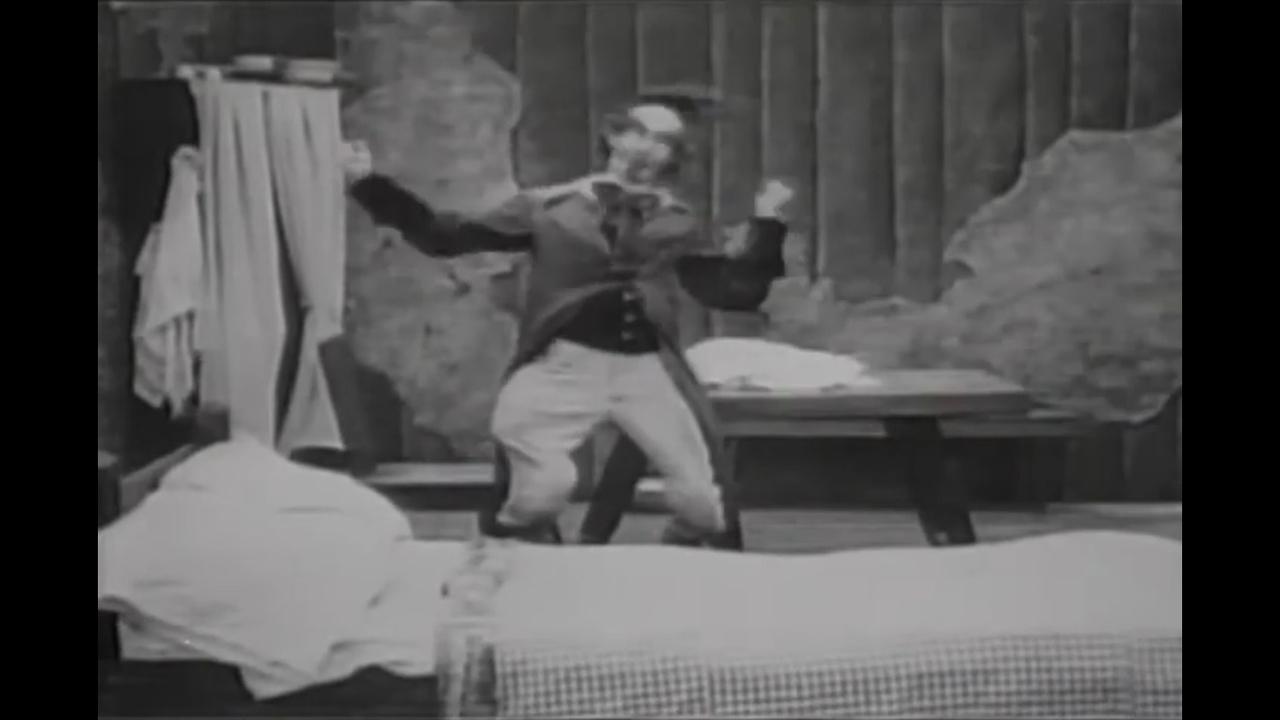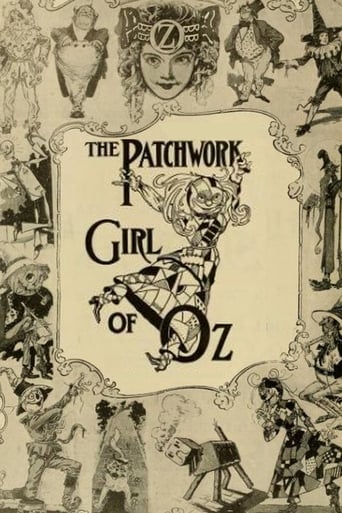TrueHello
Fun premise, good actors, bad writing. This film seemed to have potential at the beginning but it quickly devolves into a trite action film. Ultimately it's very boring.
Brennan Camacho
Mostly, the movie is committed to the value of a good time.
Edwin
The storyline feels a little thin and moth-eaten in parts but this sequel is plenty of fun.
Lee Eisenberg
The most famous movie adaptation of a novel by L. Frank Baum entails Toto, a tornado, ruby slippers and a yellow brick road. Well, it turns out that Victor Fleming's 1939 adaptation was not the first. An earlier screen version of "The Wizard of Oz" was a 1925 loose adaptation of the story, notable for casting Oliver Hardy as the Tin Woodsman.And then there were the adaptations in which Baum himself participated. He founded the Oz Film Manufacturing Company and made some movie versions of his novels. These aren't the most sophisticated adaptations but are worth seeing as a look into early cinema. "The Patchwork Girl of Oz" features things like people getting turned into statues (and one of them getting shrunken down so that a woman can carry him). Yeah, Baum came up with some wacky stuff.One interesting thing about this movie is that the lion is played by none other than Hal Roach, best known as the producer of Laurel & Hardy's movies. It appears that only Stan Laurel didn't get to go to Oz on the silver screen. Of course, I can't picture him in Oz without imagining that he would have turned everything upside down. In other words, it would have been another fine mess that he'd gotten himself into! Anyway, this movie is worth seeing. I wonder what Baum would have thought of the most famous adaptation of his work, had he lived to see it.
Michael Neumann
L. Frank Baum himself produced and wrote this adaptation of his own Oz book, a full quarter century before Judy Garland strolled the yellow brick road. What survives is an intriguing artifact from cinema's infancy, antiquated in style and naive in sentiment, but compensating with plenty of charm for what it lacks in sophistication. The influence of theater can still be seen in the histrionic acting and static camera set-ups, but the affection Baum lavished on his creations (munchkins, magicians, 'hoppers', the 'woozy') is clearly evident, even today. His fertile imagination, reinforced by some clever (if primitive) camera tricks, makes this an enchanting fantasy with more than merely academic interest for students of early film history.
JohnHowardReid
A feast of quaint but super-hectic activity, presented before a solidly stationary camera (except for the effective concluding shot), this is a dated and none too interesting attempt by author L. Frank Baum himself to transfer his Oz from the printed page to the cinema. He is let down by the totally unimaginative direction (from well-known character actor J. Farrell MacDonald), the almost entirely stationary camera-work (though there are a couple of clever touches here and there) with its long, boring takes, and the inappropriately over-the-top enthusiasm of almost all the players.As a curiosity, the movie would make a tolerable two-reeler, but 65 minutes of repetitious jumping, sliding, running, kicking, dancing, climbing, gallivanting, funning and frolicking, is, despite the picturebook tints and novel costumes of its picturebook illustrations brought to life, just far too much of a mediocre thing.Now, if the highly imaginative original drawings by W.W. Denslow that accompanied Baum's first and most famous venture into the land of Oz, The Wonderful Wizard of Oz (1900), had been brought to life rather than the conventional Victoriana here displayed, the film would doubtless have captured an audience's interest far more than this ultimately wearisome parade. Unfortunately, there was no chance of that happy eventuality. Baum and Denslow had a falling out in 1901 when both men claimed that the instant success of Oz was primarily due to their own input. Therefore it's no surprise that producer Baum made it his business to ensure the movie's visuals were as far removed from Denslow's creations as possible.
Cineanalyst
"The Patchwork Girl of Oz" is one of the three Oz films produced by author L. Frank Baum's own production company. And, as to be expected, it's childish for sure. Supposedly, there's humor in characters jumping around and moving about erratically. Violet MacMillan plays a munchkin boy, but is very obviously a woman. Additionally, the static shots from a stationary camera make it a typically primitive film from 1914. But, there is also some inventive fantasy design--in the story, its odd places and characters, the costumes (even the silly animal ones) and the sets. The trick shots, such as stop-motion animation, are very basic, even for 1914, but nothing more was needed.Children of today could still probably have fun watching this, but even for adults addicted to silent films, like myself, it may be too childish. Yet, they transferred the fantasy from the book very well and that made it worth a look for me. And, the film's faithfulness to the book shouldn't be in question, as Baum worked on this adaptation himself. It's also interesting how far back children's movies and fantasies go in film history. It's been sometime since I saw the two follow-ups to this film: "The Magic Cloak of Oz" and "His Majesty, the Scarecrow of Oz", but I remember them as more of the same.

